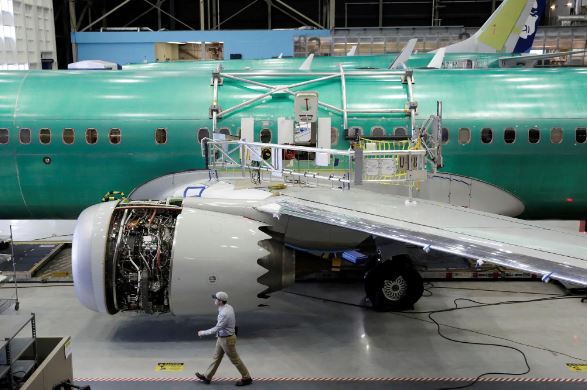A comprehensive six-week audit conducted by the Federal Aviation Administration (FAA) on Boeing’s production of the 737 Max jet uncovered a multitude of problems throughout the manufacturing process, both at Boeing itself and at one of its key suppliers, Spirit AeroSystems. The audit was initiated following an incident where a door panel detached from a 737 Max 9 during an Alaska Airlines flight in January, prompting concerns about Boeing’s quality-control practices.
While the FAA announced last week that the audit revealed “multiple instances” of noncompliance by Boeing and Spirit AeroSystems, it refrained from providing specific details at the time. However, a slide presentation reviewed by The New York Times sheds light on the findings, indicating numerous areas of concern.
The examination, which included 89 product audits focused on Boeing and 13 on Spirit AeroSystems, resulted in a significant number of failures and alleged instances of noncompliance. Boeing passed 56 of the audits but failed 33, with a total of 97 alleged noncompliance instances identified. Similarly, Spirit AeroSystems saw six passing grades out of 13 audits, indicating substantial challenges in meeting quality-control requirements.
Among the troubling findings were observations of unconventional practices, such as Spirit mechanics using a hotel key card to check a door seal and applying liquid Dawn soap as a lubricant during the fitting process. These actions were not adequately documented or aligned with specified procedures, raising concerns about adherence to quality-control standards.
Both Boeing and Spirit AeroSystems have acknowledged the findings and committed to addressing the identified nonconformities. Spirit’s spokesman, Joe Buccino, stated that the company is reviewing all identified issues for corrective action, with a goal of minimizing defects and errors in its processes. Boeing, on the other hand, did not immediately comment on the audit results but previously indicated plans to develop a plan for quality-control improvements in response to the FAA’s directives.
The FAA’s audit covered various aspects of the 737 Max production, including wings and other critical systems. Many of the issues identified by auditors pertained to deviations from approved manufacturing processes and inadequate quality-control documentation. Additionally, the examination assessed the understanding of Boeing employees regarding the company’s quality-control procedures, revealing areas for improvement.
Specific audits highlighted problems related to the door plug component, which was involved in the Alaska Airlines incident. Boeing failed certain checks related to inspection and quality-control documentation concerning this component. Similarly, Spirit AeroSystems faced challenges in areas such as the installation of cockpit windows and cargo doors, indicating broader issues within its manufacturing processes.
The audit, which involved up to 20 auditors at Boeing and approximately six at Spirit AeroSystems, underscores the complexity of ensuring compliance with stringent quality-control standards in aircraft production. Both companies are pivotal in the production of the 737 Max, with Boeing assembling the aircraft in Renton, Washington, and Spirit AeroSystems manufacturing the fuselage in Wichita, Kansas.
While the FAA’s investigation continues, concerns persist about the implications of manufacturing lapses on aircraft safety and regulatory compliance. The findings of the audit highlight the importance of robust quality-control measures and adherence to established procedures to ensure the integrity and safety of commercial aircraft production.

